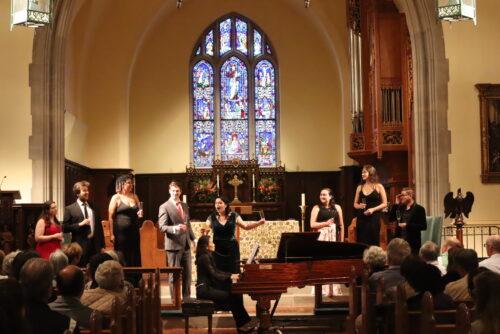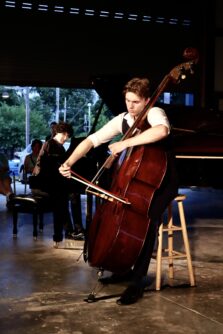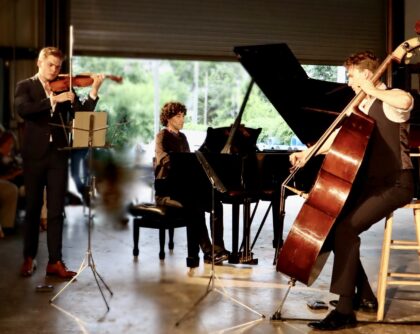The Oyster Bay Music Festival (OBMF) is set to return this summer from June 27 to July 4. This festival will feature 12 performances in 10 different venues along the Gold Coast of Long Island. The series will appear in the towns of Oyster Bay, Manhasset, Roslyn, Cold Spring Harbor, Old Westbury, and Huntington. These venues will come alive with classical music while bringing their respective communities together.
Thirteen years ago, the music festival started as a grassroots project to educate young musicians and give them the opportunity to perform. As its audience began to grow and develop, the festival itself did as well.
Many performers returning this year are young, local musicians who grew up attending the OBMF. Although many of them have their own budding careers—and have won prizes, awards, and international recognition—their return proves how important community cultivation is at the festival.
The music festival focuses primarily on classical music, although it approaches traditional pieces in a new and fresh way.

Co-Director Pippa Borisy explains that the Oyster Bay Music Festival provides a “kaleidoscope concert.” With the incorporation of string and brass instruments, as well as vocal performances, the musicians at the OBMF display a range of styles and techniques.
Additionally, the performances are designed to engage attendees who are unfamiliar with classical music. Each concert will also feature ensemble, solo, duet, and trio performances, providing attendees with the opportunity to find the music of their choice.
This “variety show” provides a wide range of music for audience members to experience.
Not only is there a vast assortment of performance types, but the venues are all very different. For example, Western Waterfront Lot J in Oyster Bay was not designed as a performance hall. Despite this, Borisy said the acoustics at Lot J are great for concerts, and the unusual space allows performers to feel completely immersed in their craft.
She explains that one year during the festival, the waterfront building housed a boat that was undergoing construction. The interactive environment of the festival, Borisy says, is “another community involvement.”
Above all, the community involved in the Oyster Bay Music Festival is its most unique trait. Communication between the festival’s audience members and musicians is valued, and it is not uncommon to occur before, during and after the performances.
This element of the festival creates a warm and welcoming atmosphere for newcomers and lovers of classical music alike.

Many of the musicians featured in the concert series are Long Island natives. Internationally celebrated pianist Maxim Lando is from Great Neck; the Zandieh Trio brothers are Juilliard-trained musicians from Oyster Bay; soprano Teddy Siegel is from Lloyd Harbor; while several others are also from the area. Their return to the festival is a testament to how supportive the local music community is on Long Island.
Not only is much of the talent Long Island based, but many staff members are as well. Co-Director Pippa Borisy directs the Great Neck Music Conservatory, Co-Director Lauren Ausubel is a flutist based in Huntington and Vocal Director Tammy Hensred is a professor of voice at Hofstra University.
While many of the musicians are Long Island natives, many are coming in from outside the region. After meeting Lando, Marc-André Teruel from Vienna and Tassilo Probst from Germany joined the organization. This collaboration with local musicians maintains the festival’s grassroots creation while expanding its variety of performances.
Additionally, the performers are primarily in their 20s, with few exceptions. These prize-winning musicians are all early in their careers, and the Oyster Bay Music Festival provides space to celebrate their success. Borisy explains that these are all “exciting, dynamic performers” who can provide fresh perspectives on classical music. Given that the OBMF was originally founded to educate young musicians, the shift to showcasing young professionals is a welcomed opportunity.
Borisy explains that the Oyster Bay Music Festival is a “project of love.” Many of those involved in organizing the event are returnees, which demonstrates the impact and connection that music provides the community. “I think they like coming because,” Borisy says, “they just get to make music.” In the OBMF, there is no sense of competition or pressure because performers are given space to experiment and collaborate with one another.
All concerts that are a part of the Oyster Bay Music Festival are free and open to the public, with the exception of the concerts held in Cedarmere in Roslyn and Old Westbury Gardens (which are open to the public but do charge admission). The festival’s eight days intend to both inspire and celebrate the Long Island community. More information can be found on their website, www.oysterbaymusicfestival.org.






























